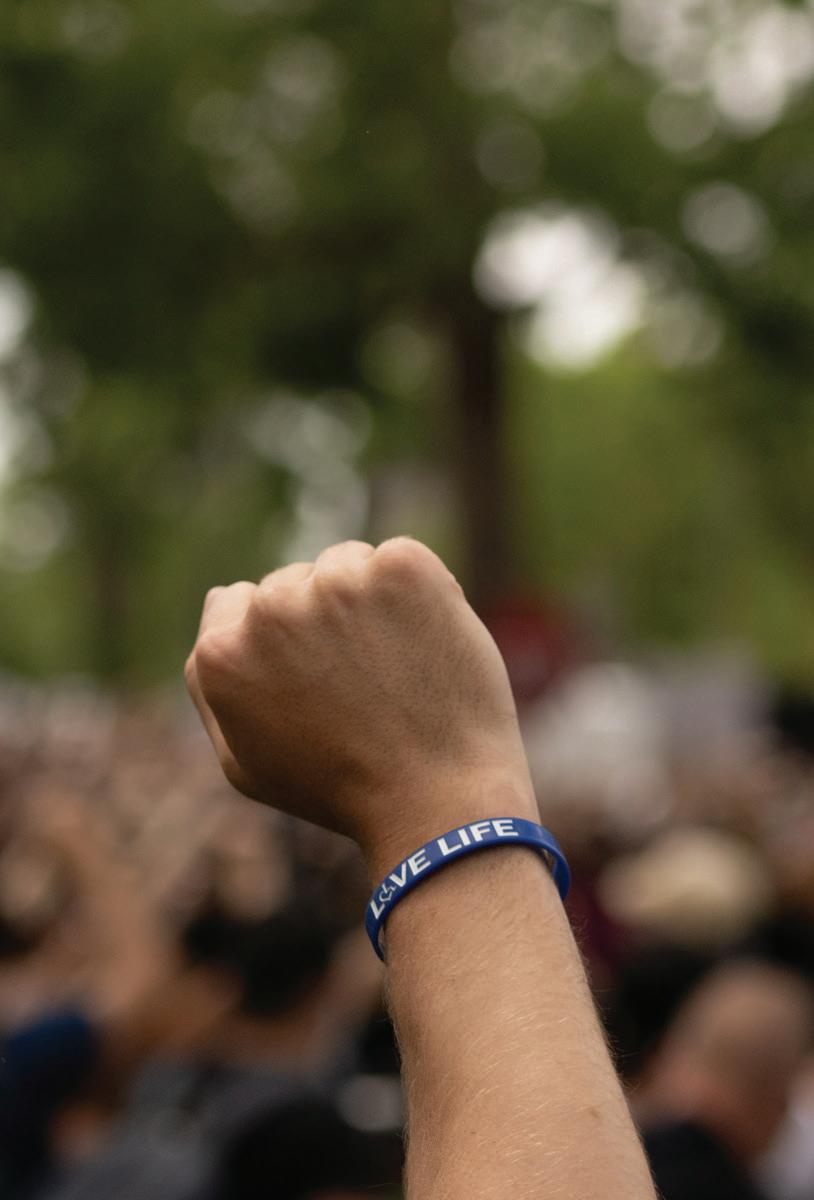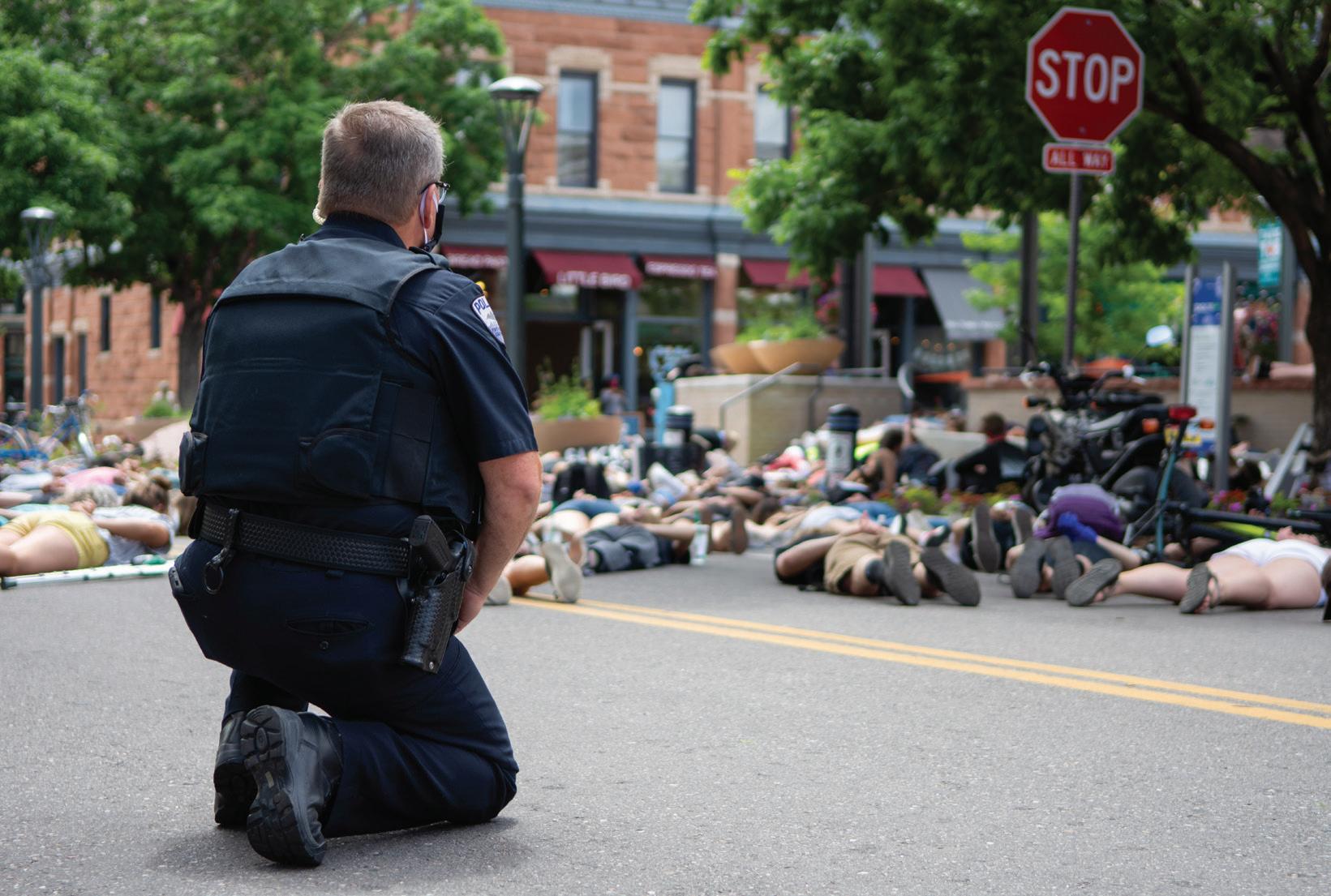
6 minute read
Protesters gather while Tay Anderson speaks to the crowd in Denver. PHOTO BY SKYLER PRADHAN THE COLLEGIAN
Jamir Constance marches for his father, his brother and cousins and for something bigger than the recent deaths.
“I look like the people who are getting killed every day for walking down the street, jogging or going to the store,” Constance said. “We’re fi ghting for the whole community, a whole race of people, someone that I call my people. It’s important to be here today — it shows true solidarity in a time of crisis. If you look at history, only good has come from protesting, riots and however you feel about the subject that’s necessary for things to change.”
WADE TROXELL
FORT COLLINS MAYOR
Walk of solidarity co-organizer Melissa Lozano Davis explained that the walk represents the movement toward “change and justice.” The walk took place on May 31 at City Park to show support for Floyd’s family.
“Our walking towards change and justice doesn’t end here,” Lozano Davis said. “For a lot of people this is a beginning step, or even a middle step, in the pathway towards justice, but we don’t want people to stop.”
Jamar Clark, Philando Castile,
David McAtee, Sean Reed, Breonna Taylor and more have all died at the hands of police.
In a recent statement, the Colorado State University O ce of the Vice President for Diversity explained that “each individual’s life and experience is distinct, but every person is connected by overarching themes of anti-Blackness, police brutality and intersections of gender within a society that devalues the lives and humanity of Black people.”
“I think George Floyd’s needless death is inexcusable, being at the hands of those who are there to serve and protect,” Troxell said. “I think it provides a chance for us all to stop and pause and to examine, individually, each of us, the deep-rooted aspects of racism in this country and take this time to look at that more fundamentally.”
Public Information O cer Kristina Shaw of Mental Health Partners, a non-profi t organization that provides immediate access to mental health and substance use care, said that the physical, mental and emotional well-being of minority communities, specifi cally Black communities, are at risk when systemic injustices related to racism happen.
“Everybody processes trauma or their experiences in di erent ways,” Shaw said. “So we can’t say that the protests are 100% helping everybody, but to have mental well-being, you want to be able to speak to your personal experiences and your lived experiences.”
The Black community, while given rights, have not been given a voice, Jensen said.
“We’ve seen it in civil rights and we’ve seen it every day since then,” Jensen said. “The Black community is just not listened to. They’ve peacefully protested, they’ve taken every attempt they can (and) they don’t have representatives that represent their community in Congress.”
Troxell said City Council has made race, inclusion and equity a priority through e orts like the social sustainability strategic plan while he has been mayor.
“From a point of view from a level of humanity, we all have to come together and work together to rectify these explicit and implicit kinds of biases,” Troxell said. “It really starts at the top where we examine ourselves and our systems.”
Institutionalized and individual racism has been addressed by CSU’s Race, Bias and Equity Initiative, which is working to place an emphasis on systemic efforts that impact permanent change on campus.
“When we say CSU is a place where all are welcomed, valued and a rmed, that comes with a responsibility to be allies, advocates and accomplices,” read the O ce of the Vice President for Diversity’s statement. “To see these events and face them. To name them. To choose to not turn away or ignore the painful parts of our reality.”
President Joyce McConnell also released a statement stating she is “heartbroken” and that the community stands united in anguish and anger.
Even as the protests die down, it is the hope that the fi ght for change remains at the forefront of everyone’s minds, Jensen said. Protesting is not enough, and people need to be reaching out to state representatives, senators and mayors, she said.
“Stand up for what’s right and expect it,” Constance said. “We’ve been taught from a young age (to) treat people how you want to be treated, and that should be driven across all race, gender, sex preference, anything. Black lives matter. Keep protesting. Keep fi ghting.”
Institutionalized and individual racism has been addressed by CSU’s Race, Bias and Equity Initiative, which is working to place an em-
Laura Studley can be reached at news@collegian.com.
“When we say CSU is a place where all are welcomed, valued and a rmed, that comes with a responsibility to be allies, advocates and accomplices,” read the O ce of the Vice President for Diversity’s statement. “To see choose to not turn away or ignore the painful parts of
President Joyce McConnell also released a statement stating she is “heartbroken” and that the community stands united in anguish
“As president of Colorado State, I a rm that it is not enough to commit to being a University and a community where hate and bias and racism are not tolerated,” read the statement. “We are committed to being anti-hate, an
Even as the protests die down, it is the hope that the fi ght for change remains at the forefront of everyone’s minds, Jensen said. Protesting is not enough, and people need to be reaching out to state representatives, senators and mayors,
“Stand up for what’s right and expect it,” Constance said. “We’ve been taught from a young age (to) treat people how you want to be treated, and that should be driven across all race, gender, sex preference, anything. Black lives matter. Keep protest
Laura Studley can be reached

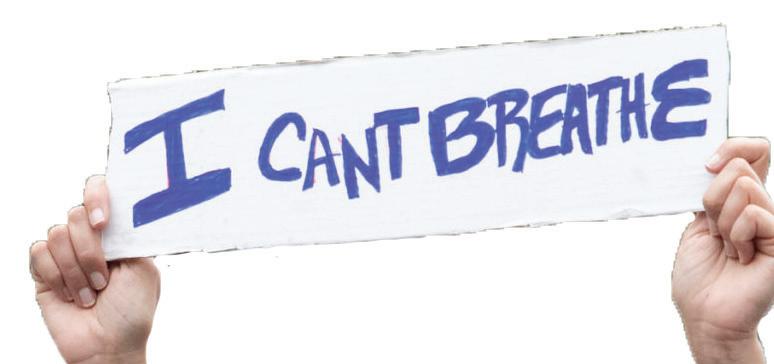
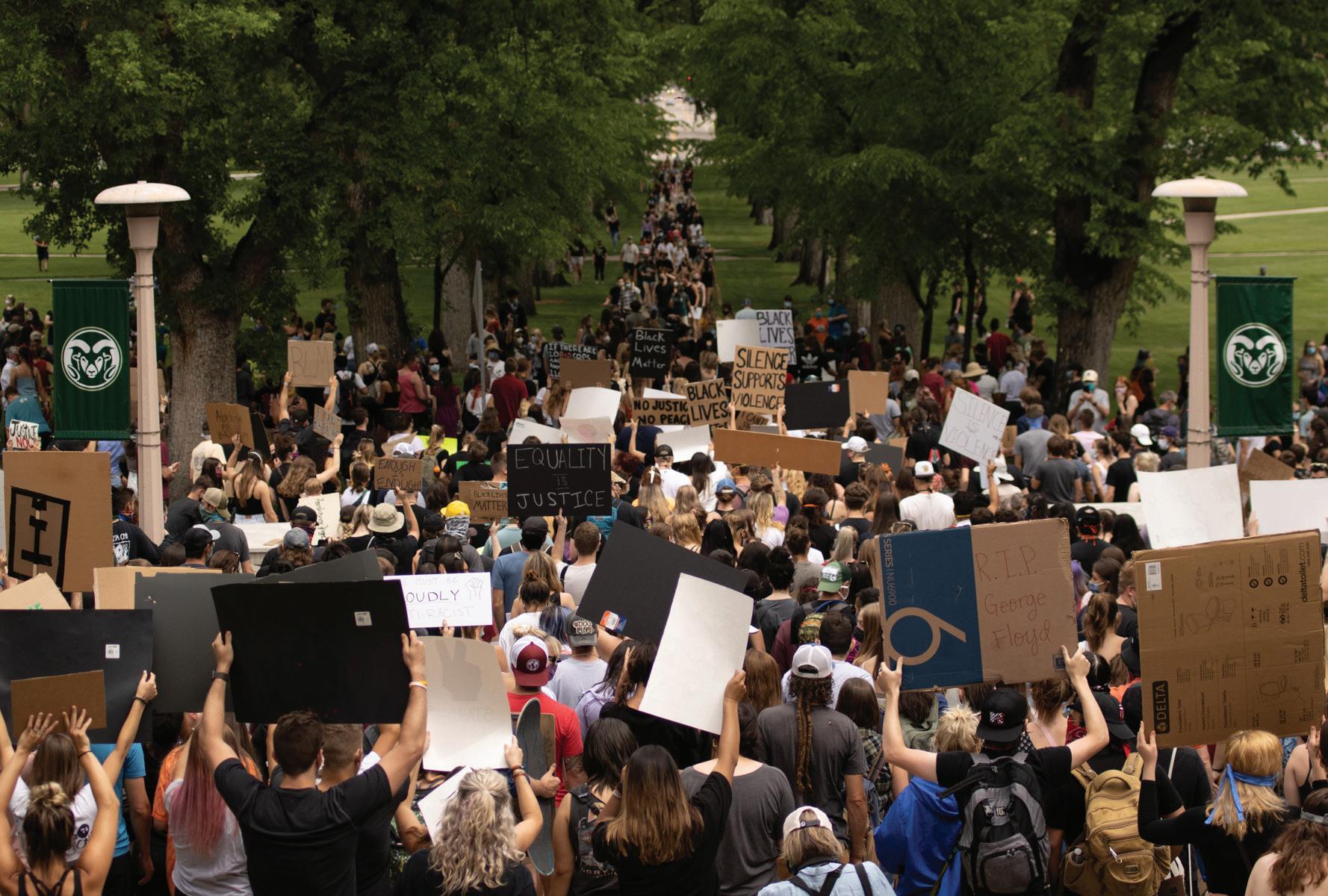
Protesters march through The Oval away from the Administration Building at Colorado State University June 2. June 2. PHOTO BY DEVIN CORNELIUS THE COLLEGIAN
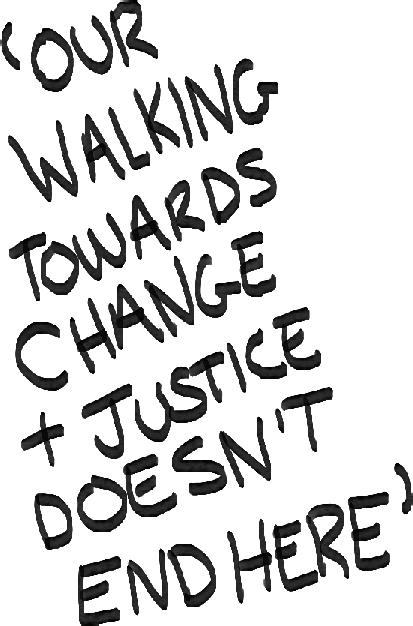
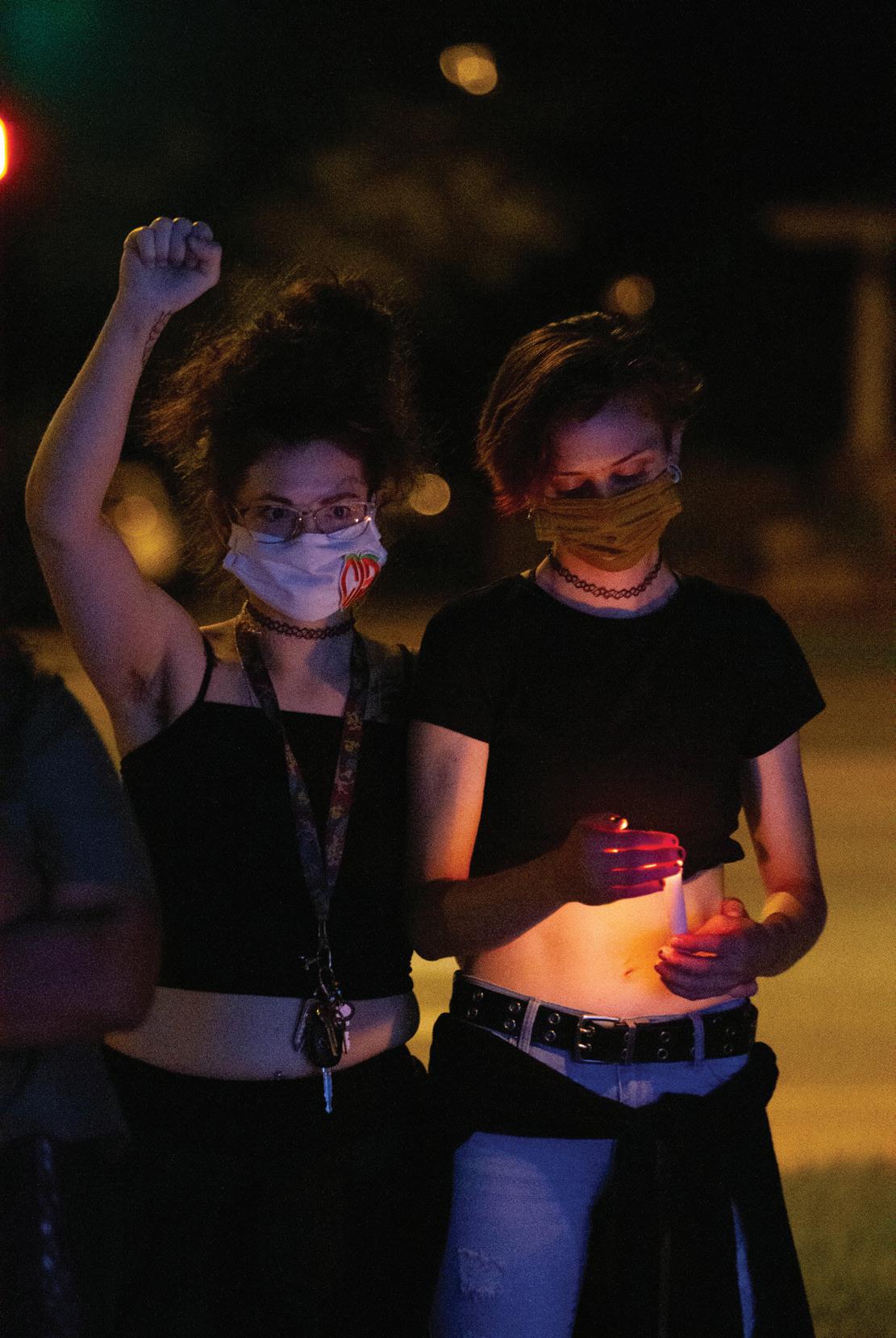
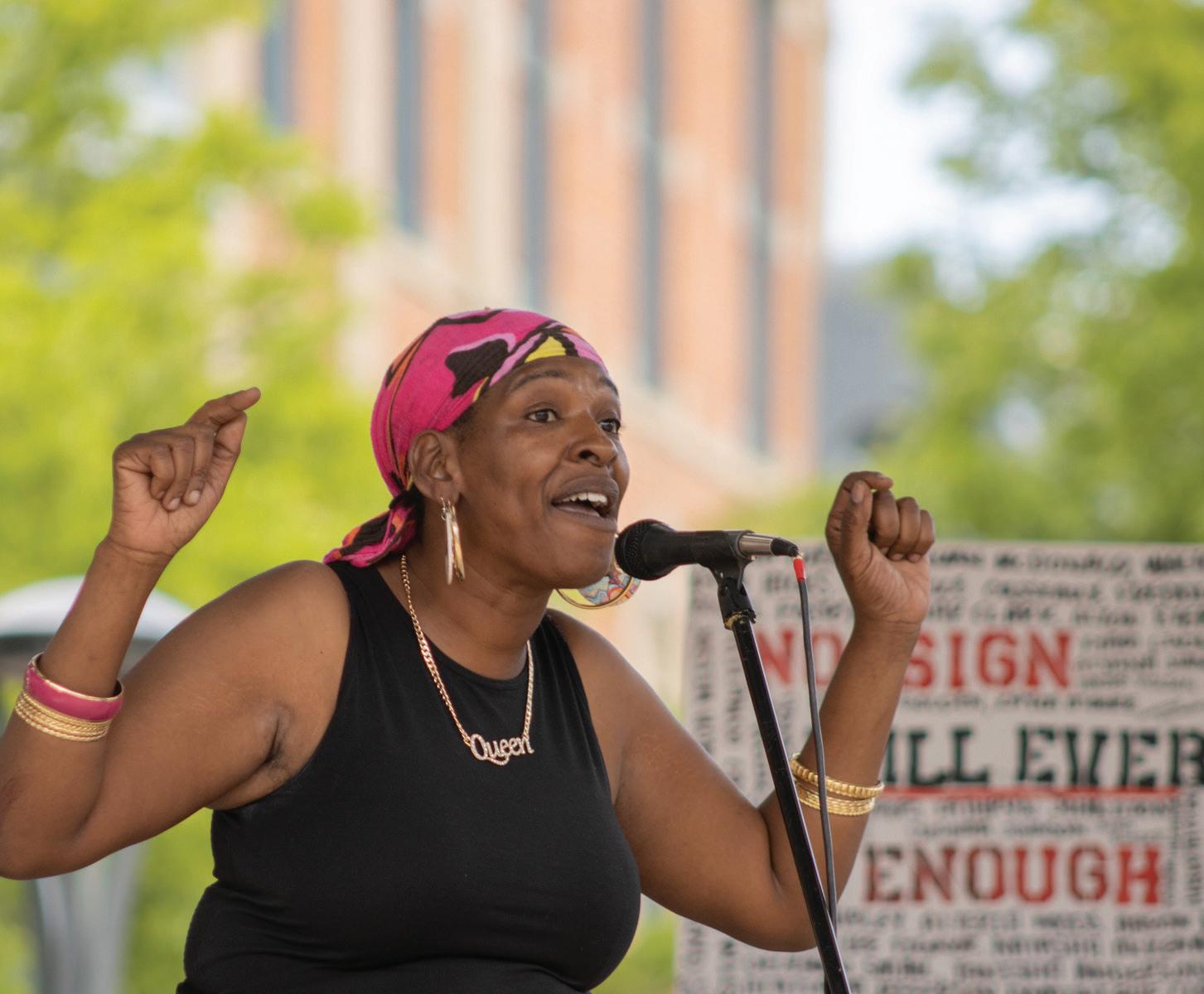
Elizabeth McCune (left) and Emily Arnett (right) light a candle at a vigil outside of Fort Collins Police Services May 29. PHOTO BY MATT TACKETT THE COLLEGIAN

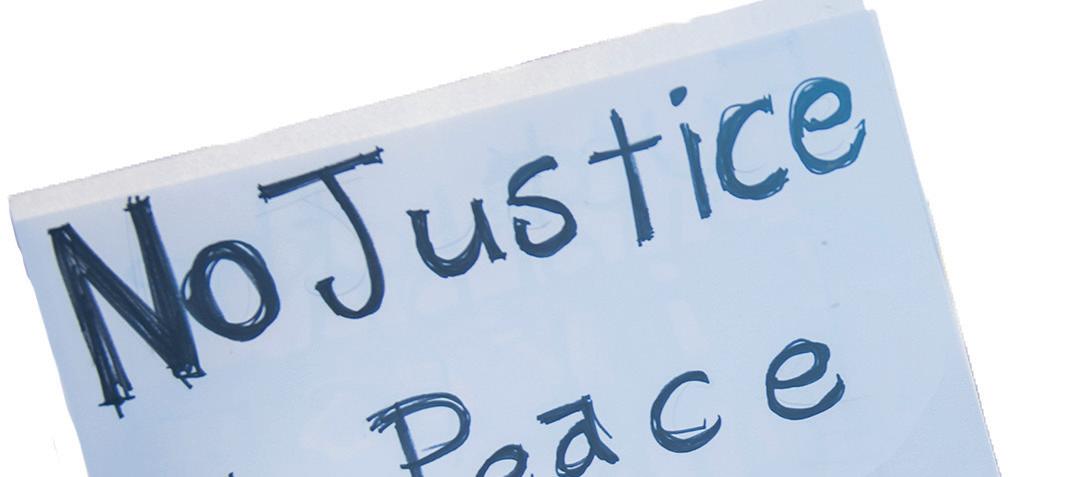
Queen Johnson speaks to protesters about her experiences with the police in Fort Collins at a protest in Old Town Square on June 5. Old Town Square on June 5. PHOTO BY DEVIN CORNELIUS THE COLLEGIAN
